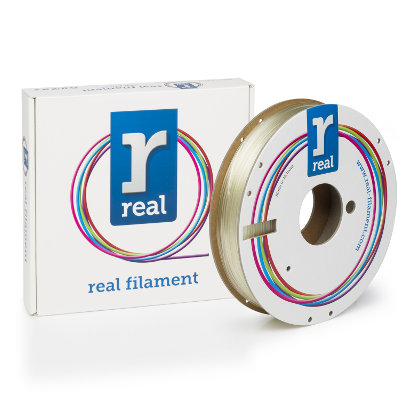PVA (PolyVinyl Alcohol)
Water soluble filament

PVA (PolyVinyl Alcohol) Is a water soluble synthetic polymer. PVA filament is typically used as support material for PLA or ABS. After printing, warm water can be used to completely dissolve the PVA support.
Diameter
| Diameter | Tolerance | Roundness |
|---|---|---|
| 1,75 mm | 0,05 mm | 95% |
| 2,85 mm | 0,1 mm | 95% |
Characteristics
| Physical characteristics | Test method | Typical value |
|---|---|---|
| Specific gravity | - | 0,6 - 0,9 g/cm3 |
| MFI | - | 14-20g /10min |
| Tensile strength | - | - |
| Elongation at break | - | - |
| Tensile modulus | - | - |
| Impact strength | - | - |
Thermal characteristics
| Description | Test method | Typical value |
|---|---|---|
| Print temperature | - | 190 - 200 C |
| Melt temperature | - | 200 +/- 10 C |
| Melting point | - | 62 C |
| Vicat softening temperature | ISO 306 | - |
Packaging
All the filaments we sell are nicely boxed with usage and material properties printed directly on the inside cover, including the recommended print and heated bed temperature ranges. In addition, each spool is vacuum sealed with a moisture-reducing silicate bag to ensure filament longevity.
How to store the filament?
Filament quality and storage is one of the most important ingredient for beautiful prints. Many people focus strictly on the immediate appearance of a product and forget that a well-preserved spool is just as important. PVA is a highly soluble, biodegradable material and breaks down in the presence of UV light and humidity. It is important to always store this filament in a sealed, non-transparent container in a cool, dry environment.